Bicycles for Health & Development
Almost 80% of the population of Uvira are farmers. There are very few professionals or people involved in small business. Most men do not have white-collar jobs and it’s the women who shoulder the responsibility to feed their families. Women do the heavy farming tasks like digging and fetching water, carrying great loads on their head or back. Sometimes they must travel for more than 20 kms to get their farm produce to market.
Insecurity in and around some of the villages also means that the women, fearful of being raped, are too terrified to leave the village to cultivate their land. This has caused extreme hardship for many families. The result is that children suffer from malnutrition in the villages and many people, especially the children and women, are losing their lives due to lack of proper healthcare. To overcome these problems MHCD set up a project to provide women with bicycles.
Insecurity in and around some of the villages also means that the women, fearful of being raped, are too terrified to leave the village to cultivate their land. This has caused extreme hardship for many families. The result is that children suffer from malnutrition in the villages and many people, especially the children and women, are losing their lives due to lack of proper healthcare. To overcome these problems MHCD set up a project to provide women with bicycles.
Cycling and Empowerment
Since 2014, MHCD has distributed hundreds of new and strong bicycles to vulnerable women from different villages. Amongst them were women who had been raped, widows, single mothers and other vulnerable women. The bicycles are used to carry farm produce, as ambulances to carry the sick to hospital and for all other important carrying activities such as fetching water.
CYCLES FOR CHANGE
Women Offload Campaign
On a typical day a woman would wake up in the morning and walk numerous kilometres to her farm. After many hours working she will finally take her harvest home.
It might weigh up to 50kgs and she will have to walk with it on her back all the way to her home and to the market.
As a result, many women have developed health problems like back aches, headaches and gynaecological disorders. Many pregnant women who carry such loads miscarry.
As a sustainable solution MHCD started the Women Offload Campaign. This campaign distributes sturdy bicycles to needy women and girls so they can carry their produce on the bicycles rather than on their backs or heads.
It might weigh up to 50kgs and she will have to walk with it on her back all the way to her home and to the market.
As a result, many women have developed health problems like back aches, headaches and gynaecological disorders. Many pregnant women who carry such loads miscarry.
As a sustainable solution MHCD started the Women Offload Campaign. This campaign distributes sturdy bicycles to needy women and girls so they can carry their produce on the bicycles rather than on their backs or heads.
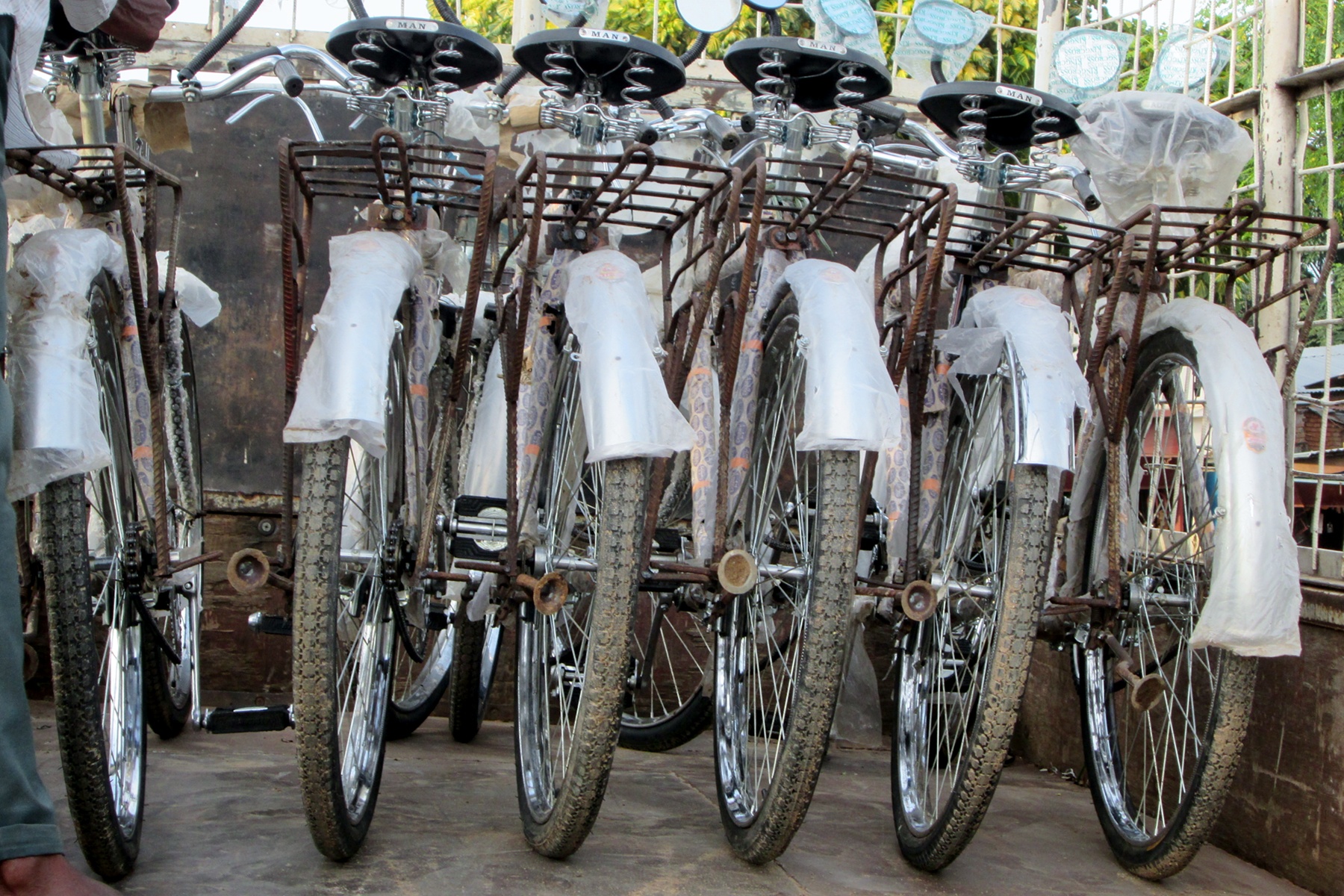
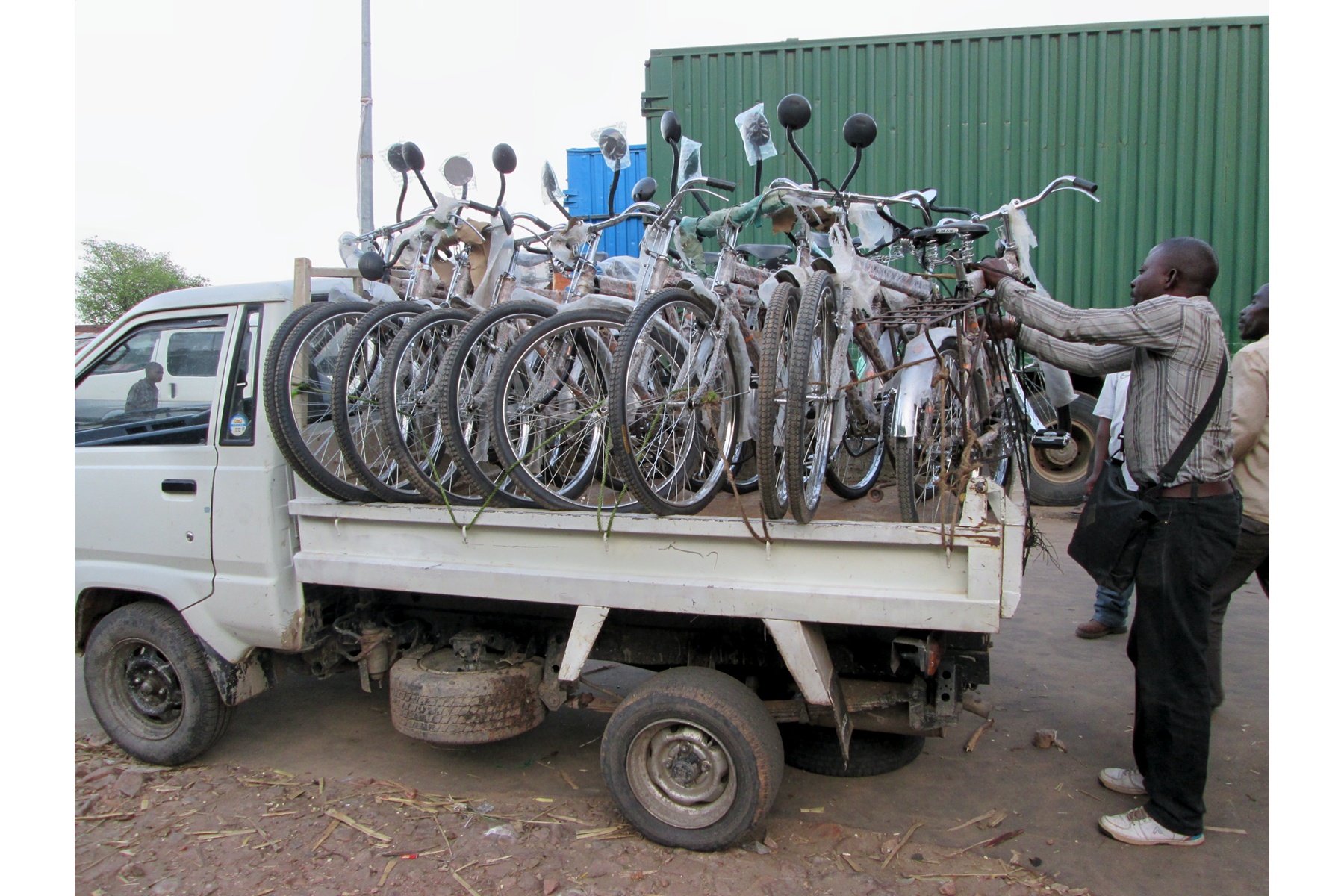
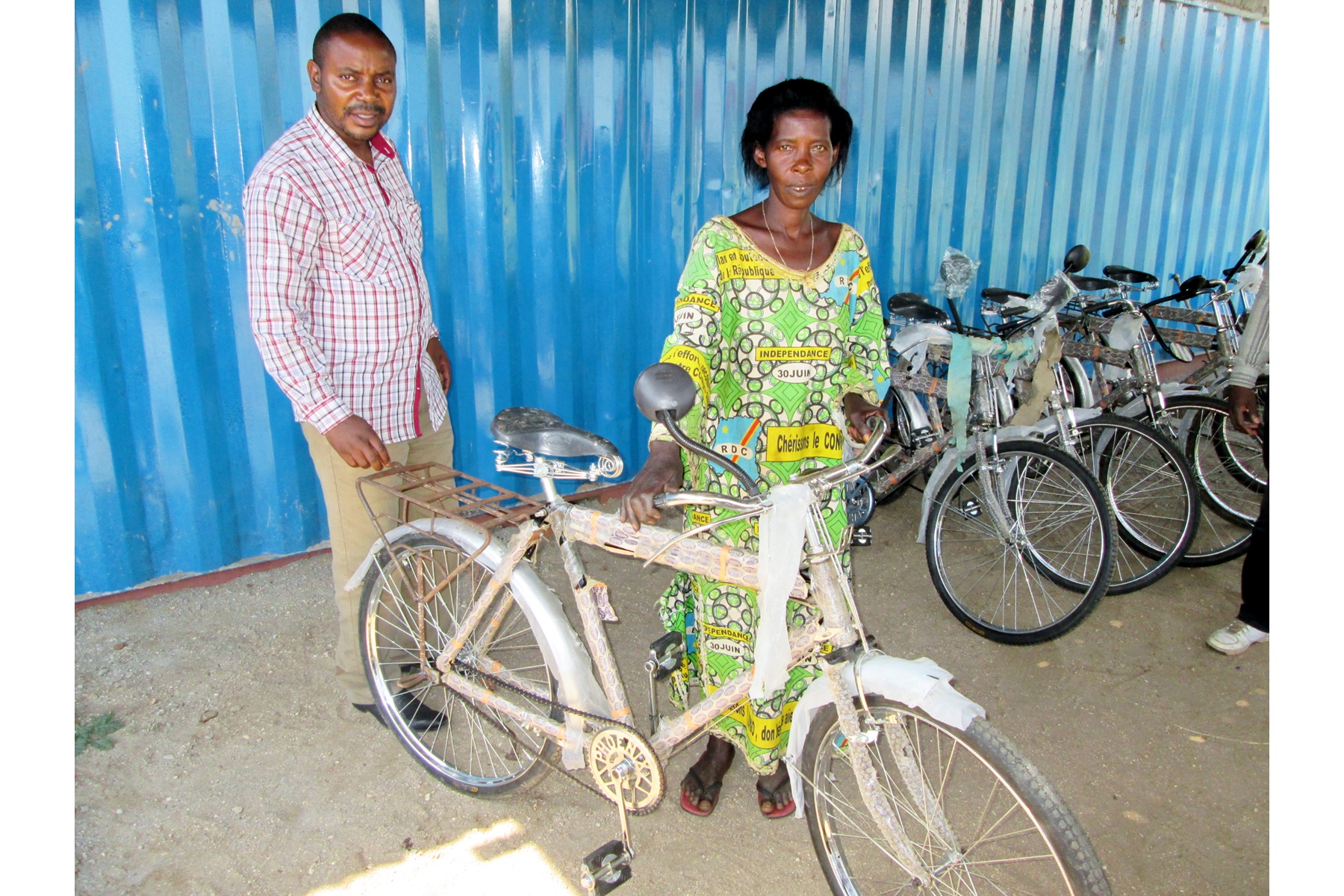
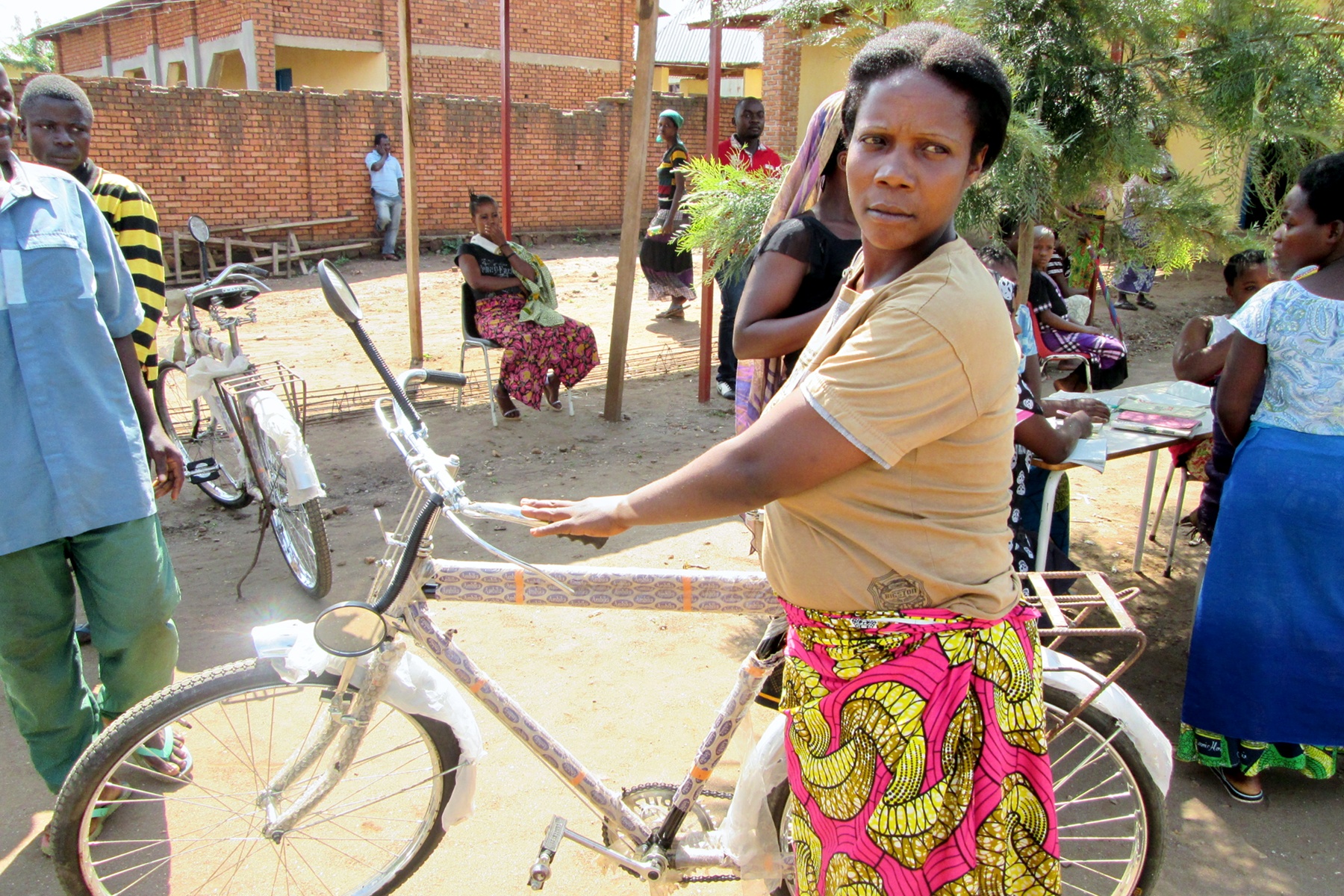
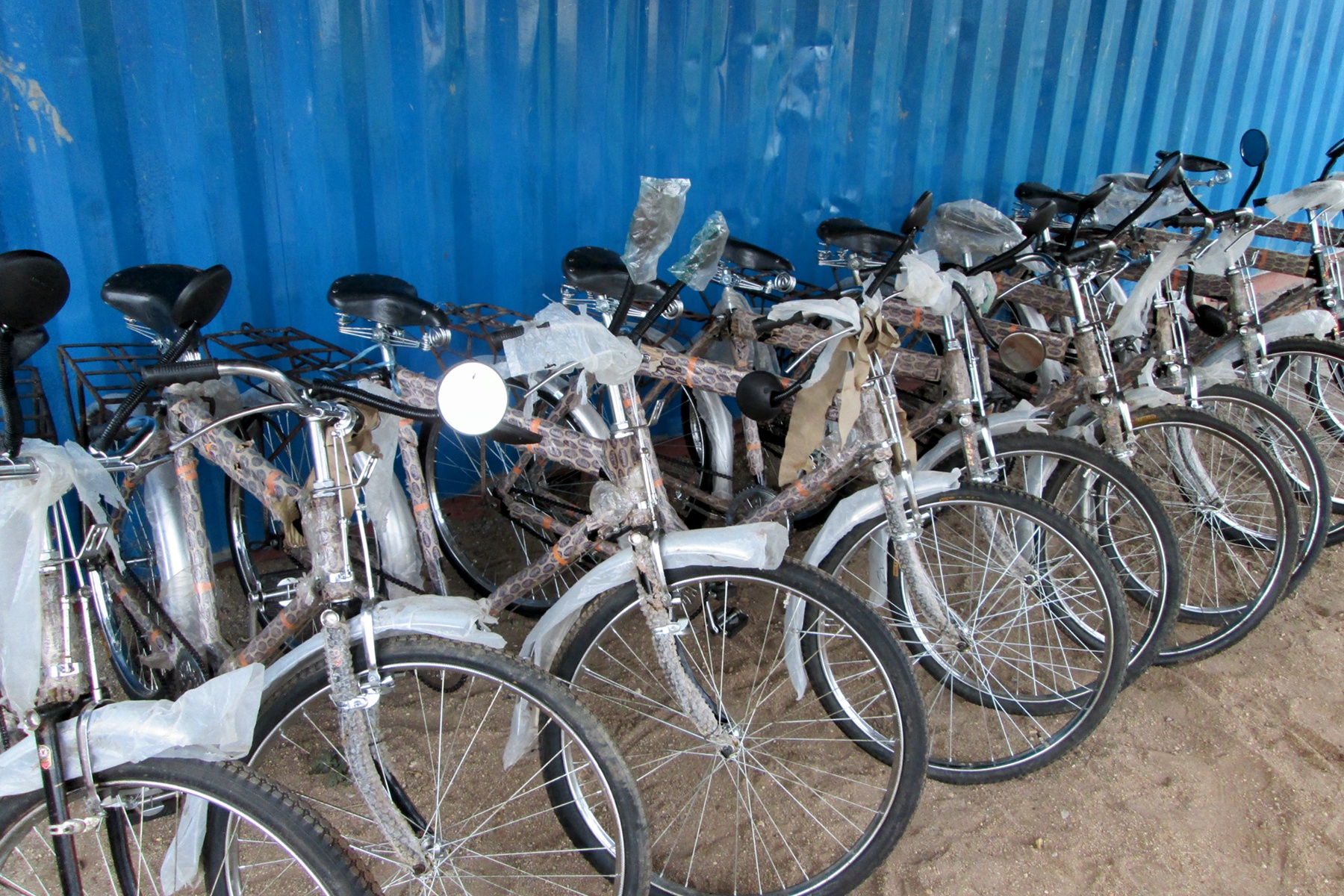
Previous
Next
